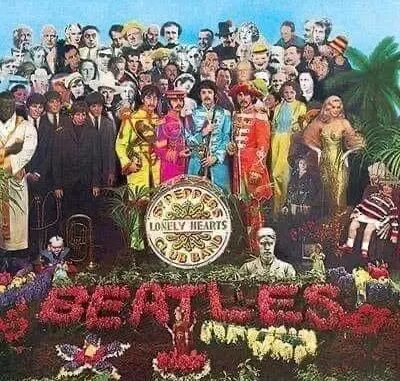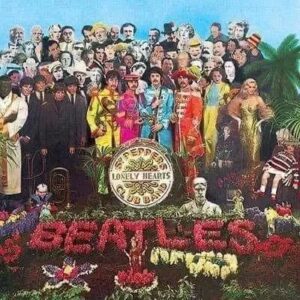
**June 2, 1967: The Beatles’ “Sgt. Pepper’s Lonely Hearts Club Band” Debuts in the USA, Setting a New Standard in Music**
On June 2nd, 1967, the music world experienced a landmark event as The Beatles’ groundbreaking album *Sgt. Pepper’s Lonely Hearts Club Band* was officially released in the United States. This release marked a significant milestone in the history of popular music, not only for its artistic innovation but also for its influence on the industry and culture at large.
Prior to this date, The Beatles’ albums in the U.S. and U.K. often featured different track listings, reflecting differing marketing strategies and record label decisions. However, with *Sgt. Pepper’s*, the band and their producers, George Martin and EMI, opted for a unified approach. This was the first time a Beatles album had the same track lineup in both countries, symbolizing a new era of consistency and artistic integrity in their discography and setting a precedent for future releases.
Released under Capitol Records in the U.S., *Sgt. Pepper’s* arrived amidst a period of rapid social and cultural change. The mid-1960s were marked by a burgeoning counterculture movement, civil rights activism, and a general questioning of traditional values. The album’s eclectic mix of psychedelic rock, experimental sounds, and introspective lyrics captured the zeitgeist, resonating deeply with a generation seeking new forms of expression.
The album’s cover art, designed by Peter Blake and Jann Haworth, became as iconic as the music itself. Featuring the Beatles surrounded by a collage of famous figures, art pieces, and cultural icons, it challenged conventional album design and became a symbol of the psychedelic era. The visual presentation, combined with the innovative music, contributed to *Sgt. Pepper’s* reputation as a multisensory experience.
Critics lauded the album for its ambitious scope. Rolling Stone magazine called it “a decisive moment in the history of recorded music,” praising its inventive arrangements and thematic cohesion. It was hailed not just as an album but as a piece of art, blurring the boundaries between popular music and high art. Its influence extended beyond music, impacting fashion, art, and attitudes toward creativity.

Commercially, *Sgt. Pepper’s* was a massive success. It debuted at number one on the Billboard 200 chart and stayed there for 15 weeks, eventually selling over 2 million copies in the United States alone within its first year. Its popularity was fueled by the band’s growing reputation as cultural icons and the album’s innovative sound, which inspired countless musicians and bands to experiment with studio techniques and artistic concepts.
The release also marked a turning point in the band’s career. The Beatles were increasingly seen as pioneers rather than mere pop stars, pushing the boundaries of what popular music could achieve. Their willingness to explore complex themes, incorporate diverse musical styles, and embrace technological innovations like multi-track recording set new standards for the industry.
Moreover, the album’s success and critical acclaim contributed to the broader acceptance of psychedelic culture and the expansion of the album as an art form. This shift paved the way for future concept albums and more experimental approaches in popular music.
*Sergeant Pepper* also played a role in elevating the status of the album format over singles, emphasizing a cohesive artistic statement rather than a collection of individual hits. This perspective influenced many artists and producers, encouraging them to view albums as complete works of art rather than just vehicles for singles.
In the context of the late 1960s, the release of *Sgt. Pepper’s* in the U.S. exemplified the merging of music, art, and social change. Its innovative approach challenged conventions, inspired generations, and cemented The Beatles’ legacy as one of the most influential bands in history.
As we look back over the past decades, the significance of June 2nd, 1967, remains evident. The release of *Sgt. Pepper’s Lonely Hearts Club Band* in the United States was more than just an album launch; it was a cultural event that symbolized the transformative power of music to shape and reflect societal shifts. Its enduring influence continues to inspire artists and audiences worldwide, making it a true milestone in the annals of popular culture.
Leave a Reply